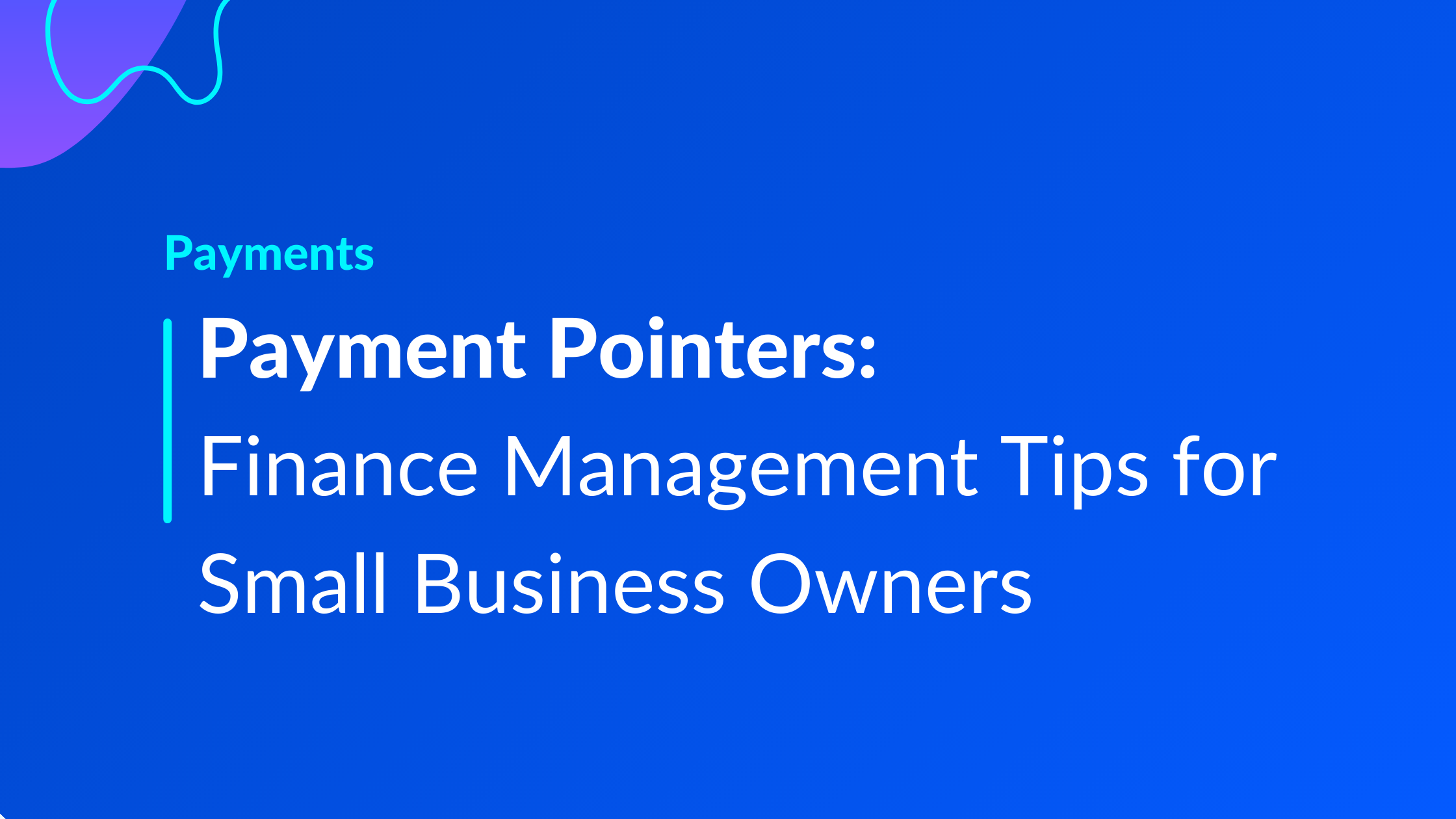Running a small business is a monumental undertaking. Juggling countless responsibilities and effectively managing finances are just a few items on the extensive to-do list.
Managing your business finances should be your utmost priority as a business owner. Without proper knowledge and expertise in finance management, you might find yourself in a challenging situation that could jeopardize the success of your business -
In our last blog, we looked at payment pointers for startups. This week, we'll delve into finance management tips for small to medium-sized business owners everywhere from automated payments to managing cash flow, we're here to help you get started.
1. Invest in Payment Automation
Integrating payment automation software into your small business operations can be a game-changer (take a moment to hear what these thriving business owners have to share). By automating your payments, you can unlock a multitude of benefits, including streamlined processes and enhanced efficiency. Say goodbye to the risk of human error that can result in financial loss. With an automated payment system like WisePay, you'll not only save precious time but also boost accuracy, leading to significant cost-savings.
2. Take Advantage of Tech-Driven Accounting Solutions
Outdated manual bookkeeping can be a hassle that leaves you with more paperwork and less time on your hands. Pursuing an automated accounting system like QuickBooks Online, is a smart move because it processes data and predictions in real-time, making it easier to track expenses, manage invoices, and monitor cash flow seamlessly.
3. Develop a Financial Plan and Stay Committed to It
Budgeting is essential regardless of business size, but it's critical for small business owners. You want to make sure that you have enough cash flow to cover expenses and allow for profit. Having a budget for cash flow management can help you make better financial decisions and aid in planning for the unexpected.
4. Monitor Your Expenses Proactively
Tracking expenses is a crucial element of finance management for small businesses that helps you understand your financial position. It’s crucial for business owners to stay on the top of their expenses, including business dealings like utility bills, office supplies, and maintenance fees. By consistently tracking your expenses, you can effectively manage your cash flow, identify potential deductions, and keep your business operating within its budget. Utilizing an automated payment solution provides you with real-time data that can assist you in achieving these goals.
5. Keep Bills and Payment Dates Organized
Uncontrolled bills and overdue payments pose a significant challenge for small businesses. This lack of organization can have severe consequences during tax season, resulting in inaccurate accounting, underpayment, and potential tax infractions. To overcome these challenges, establish a well-structured payment schedule and leverage payment automation to ensure prompt and effortless payment of all obligations.
Effective finance management and mindful spending practices are vital elements of operating a small business successfully. Implementing automated payments and tech-driven solutions provides a great starting point for creating processes that can control, track, and monitor expenses with efficiency -
Discover end-to-end financial automation with WisePay, which seamlessly works together with Wise-Sync, to automate every step of the invoice lifecycle - get in touch with our trusted team today to find out more.
